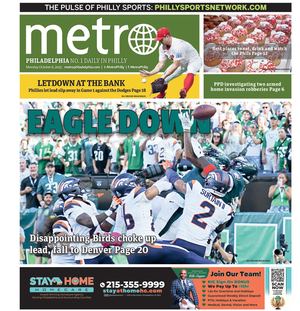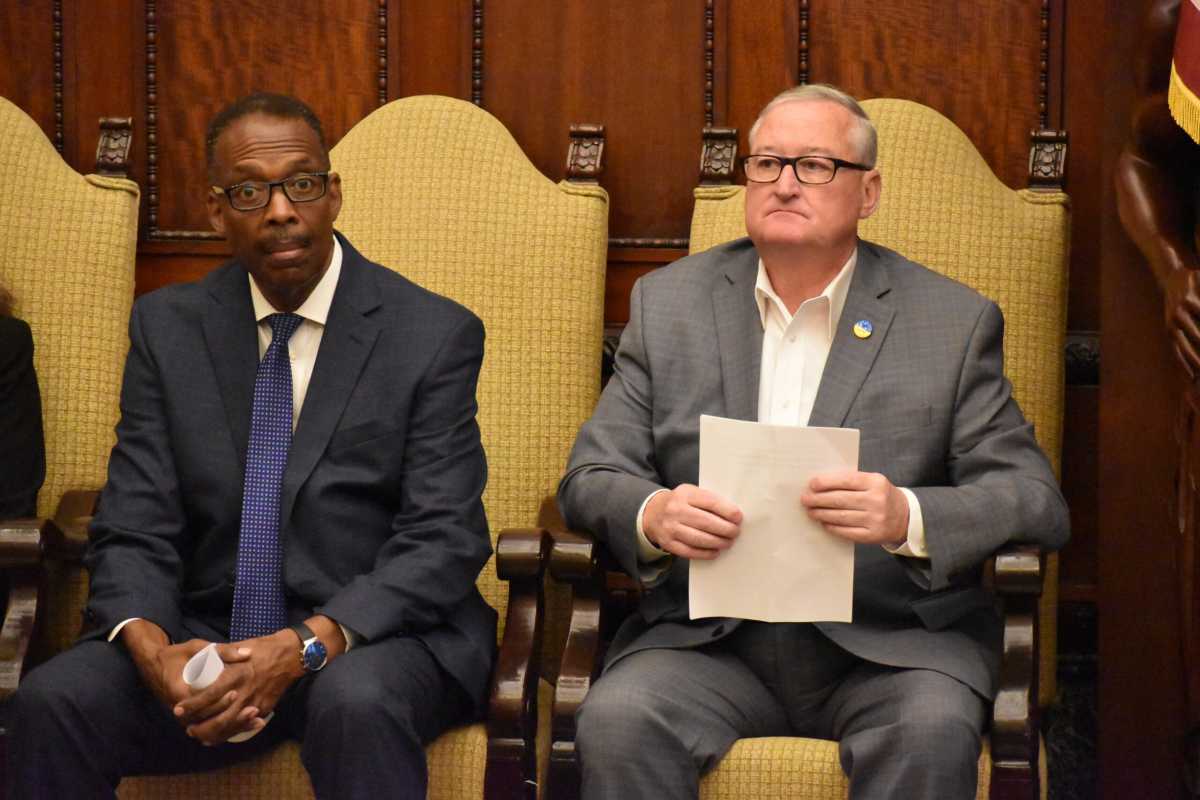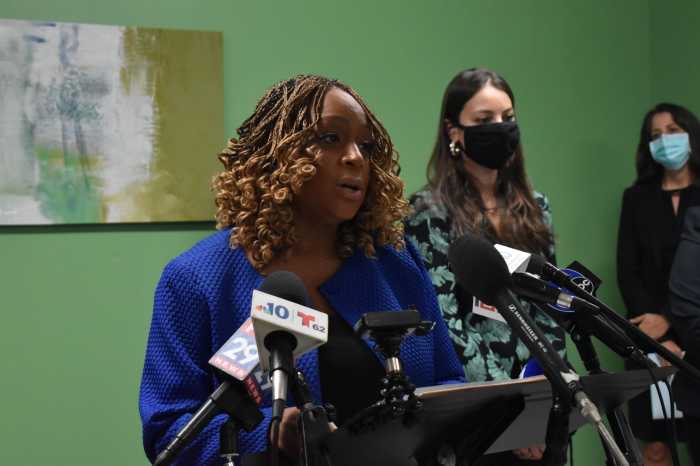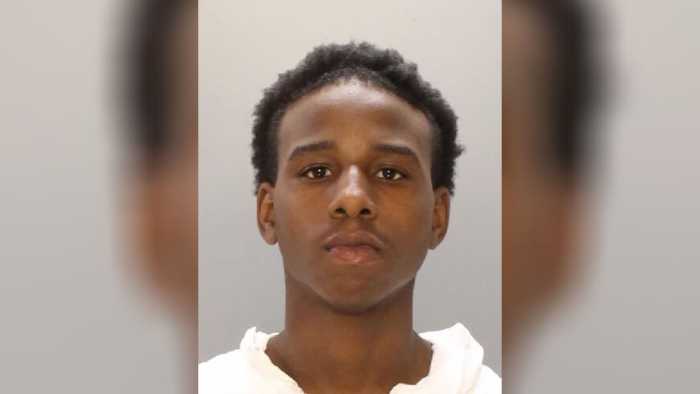Attorneys for the city of Philadelphia were met with skepticism from the Pennsylvania Supreme Court on Wednesday as they presented their oral arguments in a case challenging the state’s prohibition on local gun laws.
Multiple justices asked questions that appeared to align with state lawyers, who argued that the issue was a political question that should be tackled in the halls of the legislature, not the courtroom.
“This is not a policy judgment. This is about lost lives,” said attorney Jasmeet Ahuja, who is representing the city, 10 people affected by gun violence and Ceasefire Pennsylvania. “This is about the inability of people to leave their homes.”
The lawsuit seeks to invalidate or weaken Pennsylvania’s firearm preemption laws. A pair of statutes forbid counties and cities from regulating “the lawful ownership, possession, transfer or transportation” of guns and ammunition.
If the justices rule the law is unconstitutional or unenforceable, Philadelphia would be able to implement a number of gun control measures that have passed City Council but are currently blocked.
The city’s legal team argues that three – a permit-to-purchase policy, a one-gun-a-month rule and an ordinance establishing procedures for extreme risk protection orders – would lead to a significant reduction in shootings.
By blocking those regulations and not advancing their own gun restrictions, Harrisburg lawmakers are violating the rights of residents, a majority of whom live in low-income Black and Latino neighborhoods, to life, liberty and the pursuit of happiness, Ahuja said.
In addition, the legislature has interfered with the city’s ability to protect public health and its actions constitute a “state-created danger,” the city’s attorneys argued.
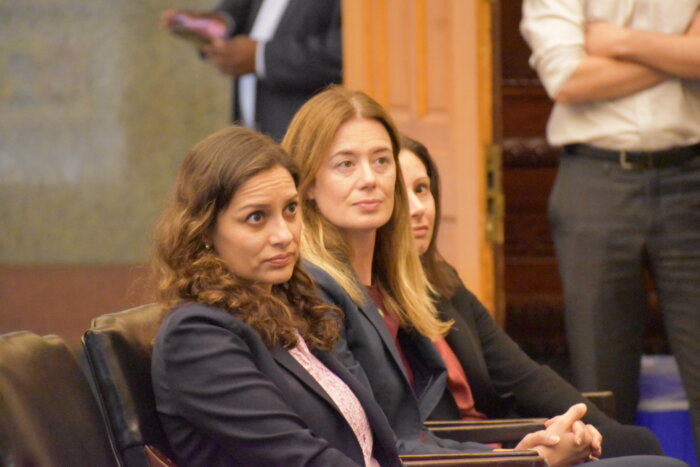
While the justices acknowledged the gun violence crisis affecting Philadelphia, Pittsburgh and other towns, they seemed hesitant to accept the assertions made in the appeal.
“Your whole argument is built upon emotional rhetoric,” Justice B. Kevin Brobson told Ahuja.
A few made comments referencing District Attorney Larry Krasner, suggesting that the city should make sure he is enforcing current gun laws. “It appears to me you have sued the wrong party,” Justice Kevin Dougherty said.
The District Attorney’s Office did not immediately respond to a request for comment Wednesday.
Dougherty and attorneys for the state questioned whether a ruling in favor of the city could allow some municipalities to loosen gun control measures. The assumption was that, particularly in some rural communities, residents might feel safer if everyone had easier access to firearms.
Deputy Attorney General Daniel Mullen, representing the commonwealth, referred to Hopewell Township, in Western Pennsylvania, where local officials adopted a “Second Amendment sanctuary” ordinance.
Attorneys for the General Assembly, state and Republican Senate President Pro Tempore Kim Ward said the legislature has the sole authority to grant and limit the powers of local governments.
They also argued that there is no right guaranteeing state protection from “third party” actors, such as criminals.
“They are essentially asking the court to weigh in on a policy matter,” Mullen told the justices.
The Commonwealth Court, a lower appeals panel, dismissed the case, filed in 2020 and known as Crawford v. Commonwealth, last year.
Pennsylvania’s highest court could uphold that decision or send the case back for a trial. It’s unclear when the justices will issue a ruling.
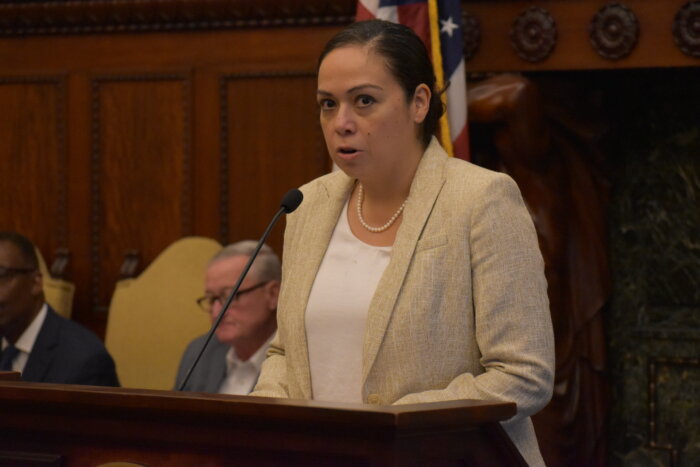
City Solicitor Diana Cortes, who appeared at a news conference Wednesday afternoon at City Hall, said she and her team “remain confident” that the court will rule in their favor.
Mayor Jim Kenney has frequently pointed to the commonwealth’s gun regulations when asked about the city’s high rates of shootings and homicides. He reiterated his frustration Wednesday.
“The Second Amendment was written when they were talking about single-shot, muzzle-loaded long guns that you had above your hearth to fight the British because we needed a militia,” Kenney told reporters. “We have the Army, Navy, Air Force, Marine Corps and Coast Guard. We don’t need a militia.”
Previous challenges to Pennsylvania’s firearm preemption laws have failed. In the mid-1990s, legislation regulating assault rifles in Philadelphia was overturned, and the State Supreme Court ruled against a slate of city-backed gun control measures in 2009.
A judge last year barred Kenney from enforcing an executive order banning weapons from recreation centers and parks, a response to the fatal shooting of Department of Parks and Recreation employee Tiffany Fletcher in West Philadelphia.
Kenney’s administration is also engaged in litigation over a city ordinance mandating that people report lost and stolen guns, and city attorneys have sued manufacturers of kits used to make “ghost guns,” or self-assembled firearms lacking a serial number.
